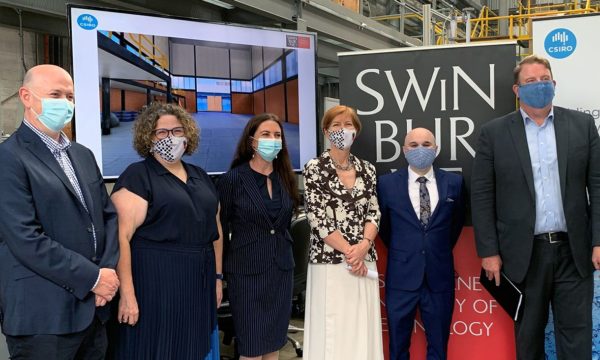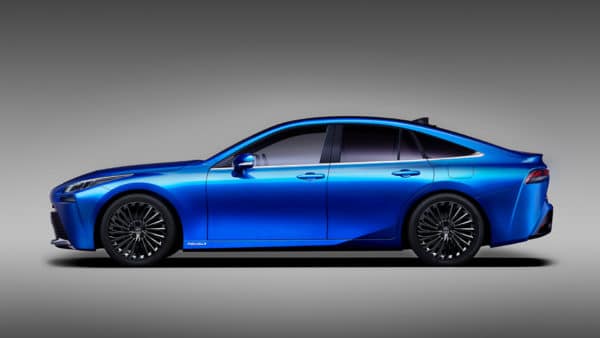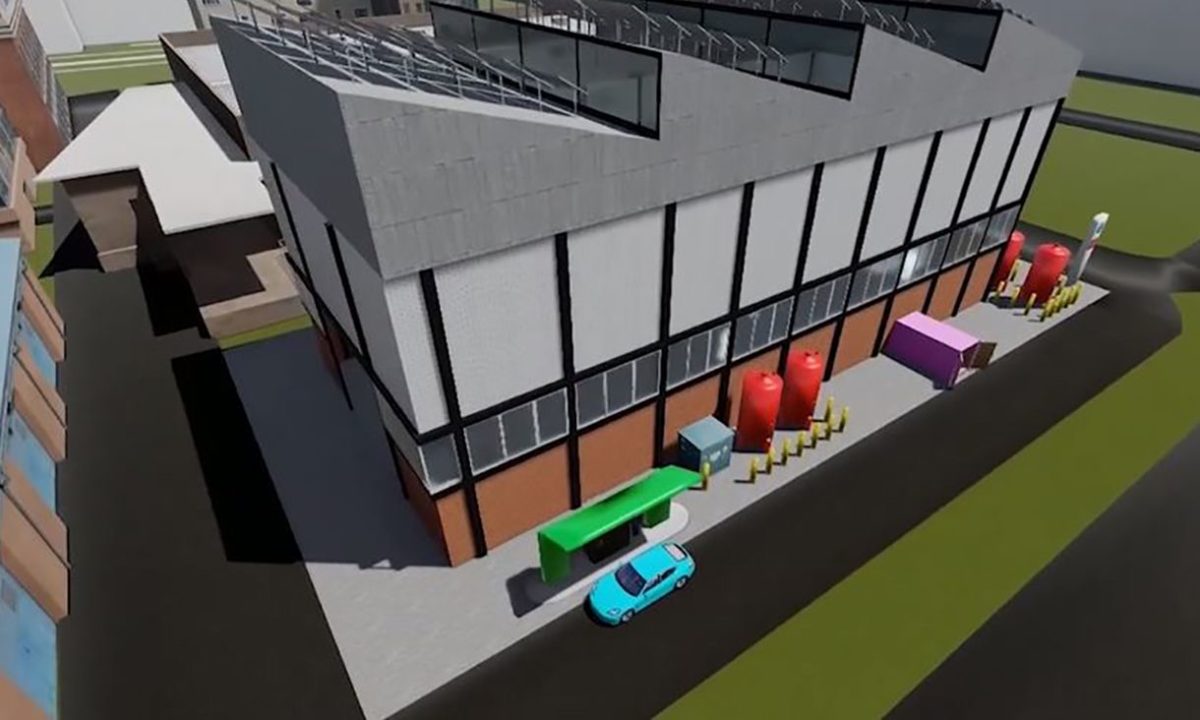Swinburne University of Technology announced on Sunday that the Victorian Government has provided $10 million in funding for the University to partner with Australia’s Commonwealth Scientific and Industrial Research Organisation (CSIRO) in developing a hydrogen hub with spokes to European collaborators and potential users of the technology.
“Swinburne’s strong partnership with CSIRO means that we will be able to build on our focus of digitalisation and Industry 4.0, and support industry to enhance understanding of what hydrogen can deliver,” said Swinburne’s Vice-Chancellor, Professor Pascale Quester.

Image: Swinburne University of Technology
The Victorian Hydrogen Hub, dubbed VH2, is intended to involve researchers, industry partners and businesses in testing, trialling and demonstrating new and emerging hydrogen technologies.
It will take 18 months to build and its remit ranges from exploring the storage of clean energy as hydrogen to promoting sustainable manufacturing using the green gas.
The $10 million boost to the combined institutes’ hydrogen-research ambitions comes from Victorian Higher Education State Investment Fund, which was created in response to the impact of the Coronavirus pandemic on Victorian universities.
That is, it’s in addition to the government’s commitment of $1.6 billion for the advancement of clean energy made in the Victorian Budget 2020/21, as the state strives toward its target to be 50% powered by renewable energy by 2030.
The education funding includes direct provision of $1 million to CSIRO for development of a hydrogen refuelling station to be co-located with the new hub in Clayton, Victoria.
“As Australia considers energy alternatives, we know hydrogen is clean and will be cost competitive, said Nigel Warren, Executive Director of Growth for CSIRO, “but a major barrier to it becoming a fuel source for cars and trucks is how to refuel, and the lack of refuelling infrastructure.”
He added, “The refueller is a significant step to removing that barrier.”

Image: CSIRO
The drive to clean up Australia’s vehicular transport sector
CSIRO has been engaging with car manufacturers such as Toyota Australia, to support the uptake and supply of fuel cell electric vehicles (FCEVs) in Australia which is already lagging the world in its adoption of electric vehicles (EVs).
On Friday the Australian Minister for Energy and Emissions Reduction Angus Taylor said the Federal Government would not offer incentives for vehicle owners to switch to EVs or FCEVs, but would instead support the future fuels sector by:
- addressing barriers to the roll out of new vehicle technologies to increase consumer choice;
- investing in early-stage technologies to stimulate the market and drive private sector investment; and
- giving Australians access to the right information to help them make informed choices.
The Victorian initiative seems congruent with national aspirations. On the weekend, the Victorian Minister for Higher Education, Gayle Tierney, added purpose to the green-fuel fire, saying: “We are proud to be investing in this forward-looking initiative, the kind that will help build a smarter Victoria and help respond to climate change.”
Toyota Australia’s Manager of Future Technologies, Matt MacLeod, is keen to bring the company’s Mirai FCEV to Australia, and said the company looks forward to “working closely with CSIRO and their partners” on the VH2 project.

Image: Toyota Australia
Won’tcha buy me an FCEV Mercedes Benz?
Swinburne is already partnered with Germany’s ARENA2036 (where ARENA stands for Active Research Environment for the Next generation of Automobiles, and 2036 denotes the “150th anniversary of the automobile”) facility in Stuttgart, home of the German car industry, that seeks to engage more than 40 partners from the global hydrogen economy in creating scalable solutions for a future low-emissions mobility sector.
“The Victorian Hydrogen Hub will be connected to a matching facility to be built by ARENA2036 in Germany,” said Professor Bronwyn Fox, Deputy Vice-Chancellor of Research and Enterprise at Swinburne University of Technology.
She added, “The international partnership connects the largest industry players in the hydrogen sector in both countries, as well as some of the largest users of hydrogen expected to drive future demand.”
Some names in the partnership include: BMW Group; chemicals, oil and gas and performance products company, BASF; Daimler AG, makers of Mercedes-Benz cars and vans, and Daimler buses and trucks; Fluid Logistics; Kromberg Schubert, producers of complex wiring systems for the automotive systems, and so, alphabetically on, reflecting the forward-thinking automotive ecosystem.
A fuel-cell-powered mission
Swinburne and CSIRO are also connected to Australia’s Hydrogen Industry Mission, and thereby to “the wider Australian hydrogen ecosystem”, said Professor Fox.
The as yet nascent Hydrogen Industry Mission — one of a series of Missions announced in August last year, aimed at solving some of Australia’s greatest challenges — will build on CSIRO’s National Hydrogen Roadmap formulated in 2018, to help Australia work out how to scale up its domestic hydrogen supply along with local demand for low-emissions technologies, and support a hydrogen energy export industry.
Capacity building for a hydrogen workforce
As an educational institute, VH2 seeks to develop “the multidisciplinary capability that Victoria will need in the growing hydrogen sector through the creation of the Victorian Hydrogen Industry Capability Program,” said Professor Quester.
She added, “This is an excellent opportunity to advance the bright minds focused on creating a sustainable future.”
VH2 itself is expected to create around 300 new full-time jobs in areas such as research, engineering and construction.
This content is protected by copyright and may not be reused. If you want to cooperate with us and would like to reuse some of our content, please contact: editors@pv-magazine.com.









2 comments
By submitting this form you agree to pv magazine using your data for the purposes of publishing your comment.
Your personal data will only be disclosed or otherwise transmitted to third parties for the purposes of spam filtering or if this is necessary for technical maintenance of the website. Any other transfer to third parties will not take place unless this is justified on the basis of applicable data protection regulations or if pv magazine is legally obliged to do so.
You may revoke this consent at any time with effect for the future, in which case your personal data will be deleted immediately. Otherwise, your data will be deleted if pv magazine has processed your request or the purpose of data storage is fulfilled.
Further information on data privacy can be found in our Data Protection Policy.